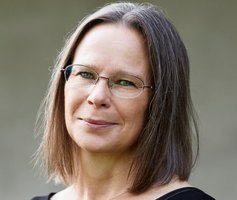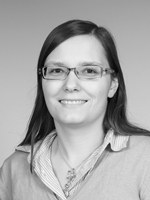IRFD grants for research into learning and well-being in schools
Professor Helena Skyt Nielsen and Associate Professor Maria Knoth Humlum from the Department of Economics and Business Economics at Aarhus BSS, Aarhus University, have received grants from Independent Research Fund Denmark from the fund earmarked for learning and well-being in elementary schools.
“The grant will make it possible for me and my collaboration partners at VIA UC to explore how important calculation methods are to whether young people become good at mathematics and whether they choose careers based on mathematics,” says Professor of Economics Helena Skyt Nielsen.
“We’re so grateful to have received this grant,” she continues.
Helena Skyt Nielsen has received DKK 3.2 million from Independent Research Fund Denmark for her project ”Design and evaluation of an intervention to improve adaptivity in multidigit arithmetic”, and her colleague, Associate Professor of Economics Maria Knoth Humlum, has received DKK 3.2 million for her project "Characterizing Good Teachers and Student-Teacher Sorting".
"I’m delighted to receive this grant, which will allow our research group to study the allocation of teachers and students in primary/lower secondary school classes. This is an important building block towards understanding what characterises the interaction between teachers and students and – ultimately – what characterises a good teacher," says Maria Knoth Humlum on receiving the grant.
About Helena Skyt Nielsen's project
There is a large group of young people who are neither in education nor employment after finishing compulsory school. There has been a lot of emphasis on the importance of deficient reading skills in this group and less emphasis on inadequate math skills. However, math skills are known to be key to success in the education system and in the labor market. Therefore, young people with lacking math skills are potentially very vulnerable and at-risk of not becoming self-sufficient in adulthood.
Every year, around 30% of students taking the ninth grade school leaving exam incorrectly answer a simple subtraction problem that can be solved using mental arithmetic. Recent Danish research shows a possible link between which strategy is used and general maths skills. This illustrates the importance of obtaining a better understanding of the development of children and young people's arithmetic strategies and maths skills, and of more evidence-based innovation in this area of education.
This research project develops, tests and evaluates an intervention aimed at strengthening the flexibility and adaptivity of students when solving arithmetic problems. Flexibility and adaptivity refers to their ability to see multiple solutions to the same problem and use the most appropriate solution method. These are key elements of the maths skills that are essential to maintaining motivation to learn maths and avoid inadequate maths skills.
About Maria Knoth Humlum's project
In this project, we are investigating two primary questions:
1) What characterises teachers who are skilled at helping their students – both academically and in terms of well-being?
2) How are students and teachers allocated to classes – and can alternative allocations help improve students’ academic achievement and well-being?
We use register data from Statistics Denmark about teachers and students coupled with survey information to investigate these questions empirically. The project uses micro-econometric methods to estimate measurements of teacher quality and assess the allocation of teachers and students.

